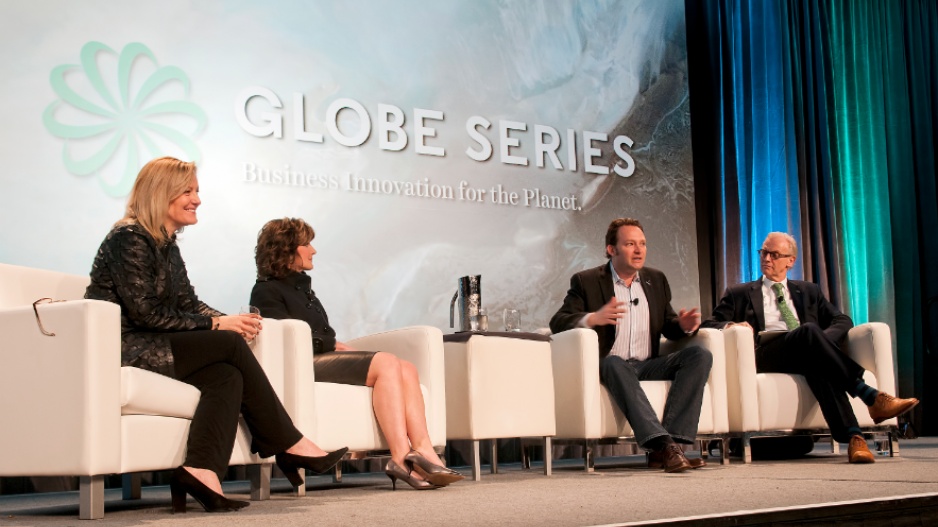Blade Runner gets the future all wrong, says Wal van Lierop.
The 1982 Ridley Scott sci-fi classic starring Harrison Ford takes place in a dystopian Los Angeles – just three years from today – in which flying cars swarm the city, the Internet does not exist and people are still smoking cigarettes indoors.
“You should go back [and watch]. You’ll realize how difficult it will be to forecast the future,” the CEO of Vancouver-based Chrysalix Energy Venture Capital told an audience at the Globe 2016 conference in Vancouver March 2.
But van Lierop took a stab at fine-tuning his foresight as he and two other panellists debated what the future of technology means for fighting climate change.
“To really change the way the world deals with carbon dioxide and climate change, we need market forces to get immediately behind this,” said panellist Paul Bunje, the Xprize Foundation’s senior scientist of energy and environment.
Xprize is best known for offering a US$10 million purse to the first privately funded team to launch a reusable manned spacecraft into space twice within two weeks.
The foundation is collecting applications for its next challenge, offering US$20 million to the team getting the highest net value in sales of products converted from carbon dioxide from gas- or coal-fired power plants.
“I expect by 2020, teams will invest well over [US]$200 million just trying to win this carbon Xprize,” Bunje said, basing his estimates on what teams invested in the US$10 million Xprize. “So that’s a leverage on R&D on a breakthrough carbon-utilization technology that is unbelievable.”
Meanwhile, panellist Deb Frodl, global executive director of General Electric’s (NYSE:GE) Ecomagination division, said her company has invested US$17 billion in clean-technology research and development.
Technologies under development at GE’s own internal tech startup, Current, include intelligent LED lighting systems, solar storage and electric vehicle charging stations, according to Frodl.
“When we launched 10 years ago, we had a lot of skeptics who said, ‘You know it’s all about the green movement. It’s going to cost too much, customers aren’t going to buy in and GE will be standing there all by yourself,’” Frodl told the panel, adding that investing in technologies that reduce power and water consumption has returned US$232 billion in revenue to GE. “[It is] a real proof point that our customers value these solutions in their operations today.”
Moderator Velma McColl of Earnscliffe Strategy Group stumped the panellists when she asked what “disruptive” technologies under development have the potential to affect climate change in the way that Apple’s (Nasdaq:AAPL) iPhone changed communication.
“One of the things about disruption is it’s hard to see coming,” Bunje said. “The problem with supply and demand is that very often the demand doesn’t exist until the supply is there.”
Frodl, Bunje and van Lierop all agreed the mere existence of breakthrough technology capable of fighting climate change isn’t enough.
“Business models are going to be critical,” Frodl said, pointing to falling costs in technology and an increasing desire from clients to reduce their carbon footprints.
And van Lierop, whose venture capital fund has invested in local clean-tech companies like General Fusion, Inventys and Axine Water Technologies, acknowledged that a lack of available capital is holding back development of technology capable of making a difference in climate change.
Bunje said it’s time incumbent players that are invested heavily in traditional energy systems move faster to reduce carbon footprints across the globe.
“We want GE and Philips,” he said.
“We don’t want Kodak, who helped develop the digital camera but couldn’t figure out how to stop themselves from going bankrupt.”
@reporton



